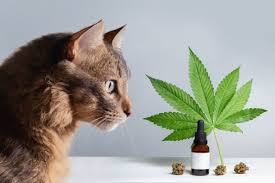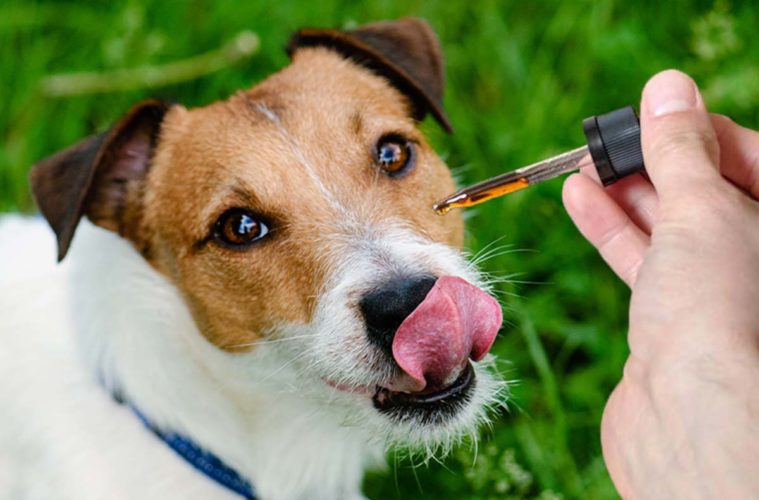Introduction
CBD oil has gained popularity in recent years as a natural supplement for both humans and pets. Many pet owners are turning to CBD to support their furry friends’ overall well-being. In this comprehensive guide, we’ll explore the benefits, proper usage, and considerations when using CBD oil for pets. Whether your pet is dealing with anxiety, pain, or other health issues, understanding how to incorporate CBD into their routine can make a significant difference in their quality of life.
Benefits of CBD Oil for Pets

CBD, or cannabidiol, is a non-psychoactive compound derived from the hemp plant. It interacts with the endocannabinoid system, which regulates various physiological processes in mammals. For pets, CBD can offer a range of benefits, including:
- Pain Relief: CBD has natural analgesic properties that can help alleviate chronic pain caused by conditions like arthritis or injury.
- Anxiety and Stress Reduction: CBD can promote a sense of calm and relaxation, making it an excellent option for pets prone to anxiety during thunderstorms, fireworks, or separation.
- Improved Joint Health: CBD’s anti-inflammatory properties may help reduce inflammation associated with joint issues, providing relief for older pets or those with mobility problems.
- Enhanced Digestive Health: CBD may aid in regulating the digestive system, making it beneficial for pets dealing with nausea, loss of appetite, or gastrointestinal issues.
Choosing the Right CBD Product
When selecting a CBD product for your pet, it’s crucial to consider factors such as potency, form, and quality. Opt for a reputable brand that provides:
- Third-Party Testing: Look for products that have been independently tested for quality and potency. This ensures that you’re giving your pet a reliable and effective product.
- Appropriate Potency: Start with a low potency and gradually increase the dosage until you observe the desired effects. It’s important to consult with your veterinarian to determine the right dosage for your pet’s specific needs.
- Formulation: CBD for pets is available in various forms, including oil tinctures, capsules, and treats. The form you choose should align with your pet’s preferences and ease of administration.
Administering CBD Safely
- Start Low and Go Slow: Begin with a low dosage and monitor your pet’s response. Gradually increase the dosage until you achieve the desired effects.
- Consistency is Key: Maintain a regular schedule for administering CBD. This helps ensure a consistent level of CBD in your pet’s system.
- Observe for Side Effects: While CBD is generally well-tolerated, some pets may experience mild side effects like drowsiness or changes in appetite. If you notice any adverse reactions, adjust the dosage accordingly.
Choosing Quality CBD Products

To ensure you’re providing your pet with a high-quality CBD product, look for certain indicators of quality. Opt for products sourced from organic, non-GMO hemp. This ensures that the CBD extract is free from harmful pesticides or chemicals that could potentially harm your pet. Additionally, seek out full-spectrum CBD oil, which contains a wide range of beneficial compounds, including other cannabinoids and terpenes that work synergistically with CBD.
Always select products that have undergone third-party testing. These independent lab reports verify the potency and purity of the CBD oil, providing you with peace of mind about what you’re giving to your furry friend. Reputable brands will readily provide these lab reports on their website or upon request.
Monitoring Your Pet’s Response
After introducing CBD into your pet’s routine, it’s essential to closely observe their behavior and overall well-being. Keep a journal to track any changes in their condition, noting improvements or any potential side effects. Look for signs of increased comfort, reduced anxiety, or improved mobility. Additionally, pay attention to any changes in appetite, energy levels, or sleep patterns.
If you notice any adverse effects, such as excessive drowsiness or gastrointestinal upset, it may be an indication that the dosage needs adjustment. Always consult your veterinarian if you have any concerns about your pet’s response to CBD.
Potential Considerations and Interactions
While CBD is generally considered safe for pets, there are a few important considerations to keep in mind. If your pet is currently taking any medications, consult with your veterinarian before introducing CBD, as it may interact with certain medications.
Additionally, if your pet has a pre-existing medical condition, such as liver or kidney disease, it’s crucial to discuss CBD usage with your vet. They can provide specific guidance based on your pet’s individual health needs.
It’s also worth noting that while CBD is derived from hemp, it contains trace amounts of THC, the psychoactive compound found in marijuana. These levels are typically very low and not enough to cause intoxication, but it’s important to be aware of this, especially if you’re considering CBD for a pet with a history of sensitivity to THC.
Conclusion
Introducing CBD oil into your pet’s wellness regimen can be a game-changer for their overall well-being. By selecting high-quality products, administering them safely, and closely monitoring your pet’s response, you can unlock the full potential of this natural supplement. Remember, your veterinarian is your best resource for personalized advice and dosage recommendations. With their guidance, you can provide your furry friend with the support they need for a happier, healthier life.
